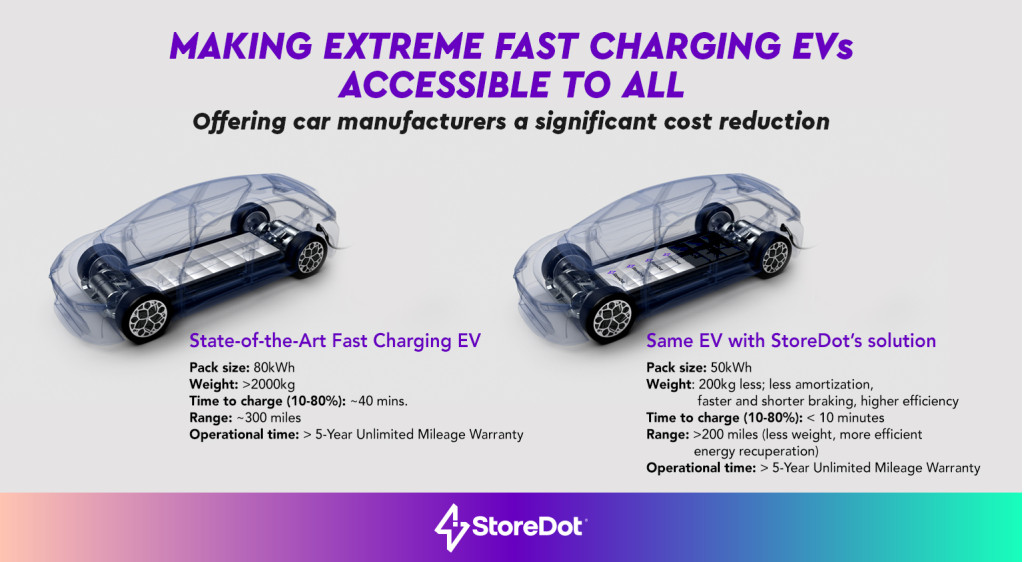Israel-based battery firm StoreDot on Thursday announced a “strategic collaboration” with Volvo to develop very fast-charging battery cells for future EVs.
The partnership will produce cells “optimized and tailored for Volvo’s future electric vehicle architecture,” according to a StoreDot press release. The company expects to deliver the first samples to Volvo for testing next year, but isn’t discussing when its cell tech might appear in production vehicles from the Swedish automaker.
StoreDot sample batteries
StoreDot claims its cells will be capable of adding 100 miles of EV range in just five minutes of charging. In an announcement of an investment from Polestar, Volvo’s sibling brand, earlier this year, the company said it aimed to mass-produce these cells by 2024.
StoreDot started delivering its cells for real-world EV testing last year. That was itself a notable milestone for the company, which expressed confidence in the five-minute charging time going back to 2017 or earlier.

StoreDot claims its battery tech will reduce EV weight and cost
Faster charging will help allow automakers to design EVs with smaller battery packs, StoreDot argues. The argument seems to be that, with the ability to add 100 miles of range in roughly the time it takes to pump gas, automakers won’t need to rely as much on large battery packs and the extra buffer of range they provide to make EVs practical. That could significantly cut cost and weight, the company has noted.
Smaller battery packs would also aid Volvo in its goal to cut its carbon footprint 40% by 2025. In a 2021 assessment, the automaker estimated that battery module production, materials production, and manufacturing itself for the all-electric XC40 Recharge were together 70% higher in greenhouse gas emissions versus the gasoline version of the XC40. So there’s a significant amount to be saved by reducing battery-pack sizes.
